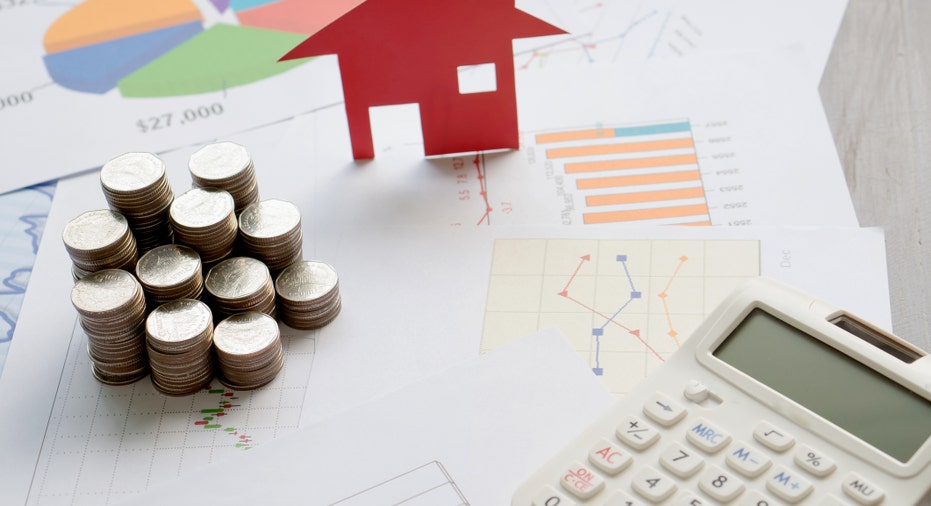Is the mortgage refinance boom ending? What to consider now

Refinancing your mortgage could still make sense, even as interest rates gradually rise. (iStock)
The COVID-19 pandemic unleashed a financial tidal wave that left many Americans struggling in the wake of job losses and reduced earnings. For some homeowners, however, the pandemic did have one positive side effect: record low interest rates for mortgage refinancing.
As refinancing rates reached historic lows, mortgage refinancing activity reached its highest annual peak since 2003, according to Freddie Mac. In January 2020, the average 30-year mortgage rate was 3.62%, reaching a low of 2.65% by January 2021. As of May 2021, 30-year mortgage rates had leveled out at 3.00%.
Freddie Mac's latest quarterly forecast suggests that refinance originations will hold steady for the remainder of 2021, despite rising rates, topping $1.8 trillion in total. Here's how to decide if the time is right to refinance your mortgage.
And if you're ready to refinance now, visit Credible to explore current mortgage loan rates and compare offers personalized for you.
REFINANCING TO A RECORD-LOW MORTGAGE RATE? HERE'S WHAT TO KNOW
Rates, while not historically low, are still close to it
Mortgage interest rates saw their biggest dip at the beginning of 2021, before beginning a slow but steady increase through the first quarter of the year. While refinance rates are above historical lows once again, it's still possible to save on mortgage interest.
Whether you're able to secure the best refinance rates may depend largely on your credit history and credit score. In response to the coronavirus pandemic, many lenders tightened restrictions on new mortgage loans and refinance loans for borrowers, shrinking the pool of homebuyers and homeowners who were able to qualify.
If you were able to maintain good credit throughout the past year or even improve your credit score, that could position you to get a lower interest rate compared with your current mortgage. A positive credit history that includes low outstanding debt, a low debt-to-income ratio and a low credit utilization rate can all work in your favor.
Checking your credit can help you gauge whether a mortgage refi could be a good move. If you're ready to refinance, visit Credible to see if you qualify for a record-low mortgage refinance rate. Credible makes it easy to compare rates from different mortgage lenders.
LOOKING TO MAXIMIZE MORTGAGE REFINANCE SAVINGS? DO THIS NOW
The cost savings of mortgage refinancing may be significant
According to Freddie Mac's data, the average homeowner was able to reduce their mortgage rate by more than 1.25%. Even if you missed out on the lowest possible mortgage refinance rate, you could still have an opportunity to save on mortgage costs, from your long-term interest costs to your monthly mortgage payment.
How much you could save by refinancing your home loan can depend on several factors, including:
- How much mortgage debt you have to refinance
- Whether you're interested in a cash-out refinance
- Your credit scores and the mortgage interest rates you qualify for
- Which mortgage term you're considering refinancing to
Switching to a shorter mortgage term, for instance, can increase your monthly payments but it can also yield more interest savings. With a lower interest rate on a similar term, you could end up lowering your monthly payment.
Consider running the numbers through an online mortgage refinance calculator. Credible's mortgage calculator can help you determine your new monthly mortgage payment and estimate your potential savings.
CONSIDERING A MORTGAGE REFINANCE LOAN? THIS IS HOW MUCH A 1% RATE DROP CAN SAVE YOU
Consider how long you plan to stay in the house
Refinancing your mortgage may or may not make sense, depending on how long you plan to stay in the home. Generally, it doesn't make sense to refinance a mortgage, even if you qualify for low rates, if you won't be able to recoup any closing costs you pay toward the loan.
This is where it helps to understand your break-even point. In simple terms, this is the point at which the money you saved on interest by refinancing cancels out any closing costs or other fees you paid to refinance your mortgage.
If you plan to move in the next three years but it would take you five years to break even on a mortgage refinance, that's a clear indication that it doesn't make financial sense. On the other hand, if you're planning to stay put for the next several years or decades, you have a longer window to recover closing costs in the form of interest savings.
HOW QUICKLY CAN YOU REFINANCE A MORTGAGE AFTER BUYING A HOME?
Final thoughts on mortgage refinancing
Refinance rates are slowly recovering from their pre-pandemic levels, but there's still room to find savings with a new home loan. If you're not sure where to start with mortgage refinancing, talking with an expert can help. You can visit Credible today to get in touch with an experienced mortgage officer and get answers to all of your mortgage refinance questions.
Have a finance-related question, but don't know who to ask? Email The Credible Money Expert at moneyexpert@credible.com and your question might be answered by Credible in our Money Expert column.



















